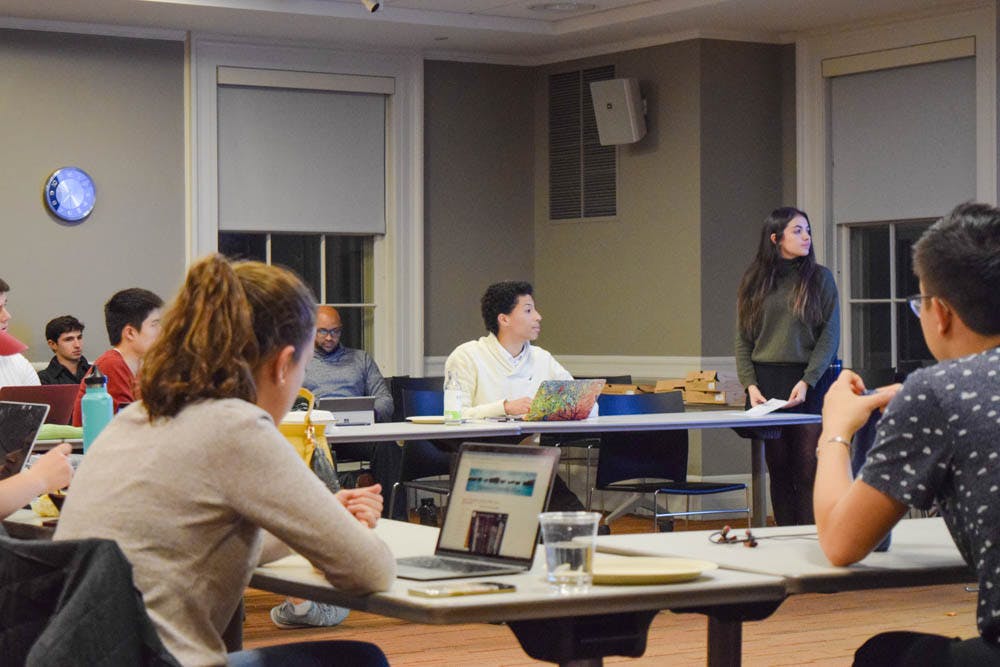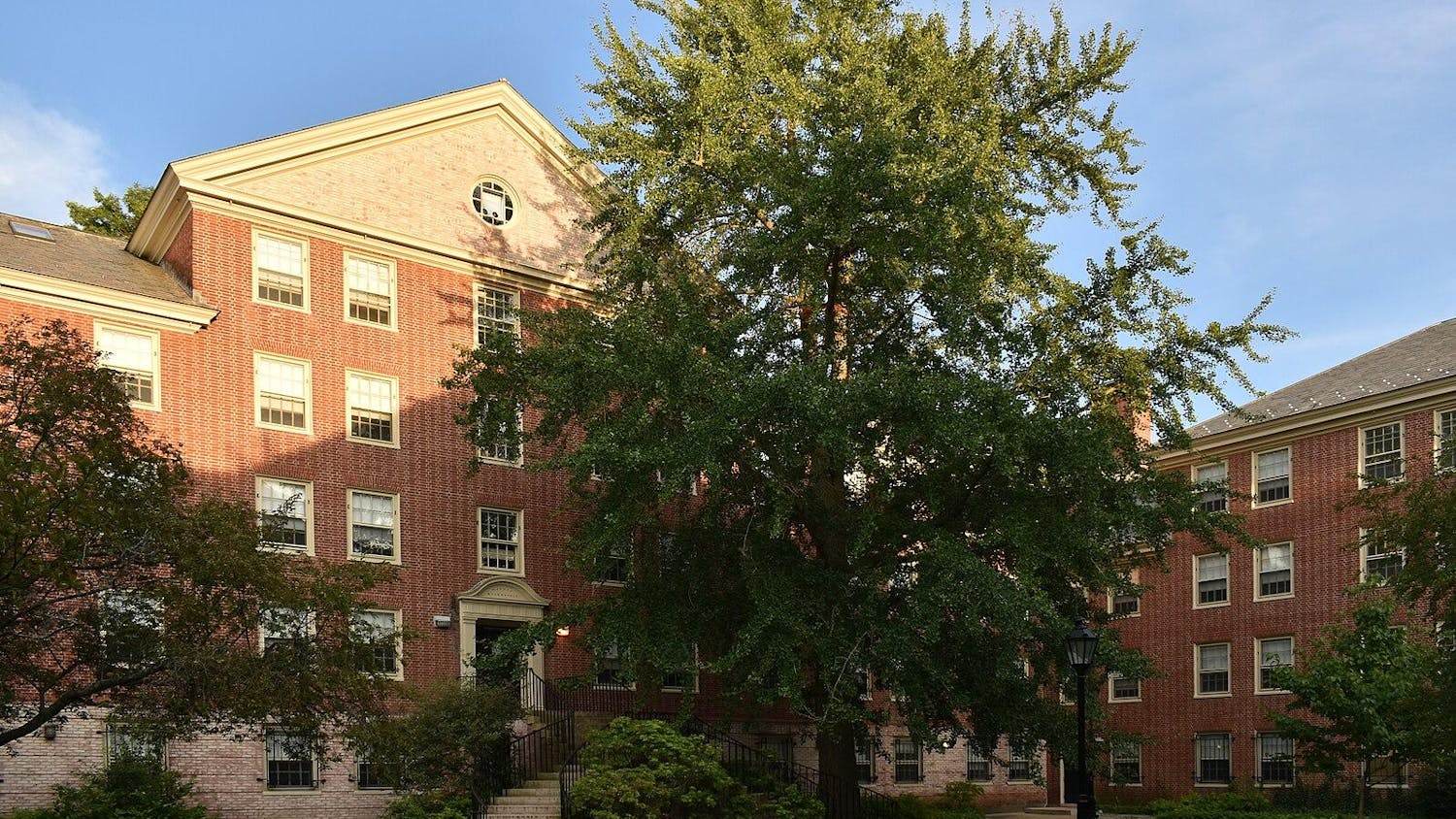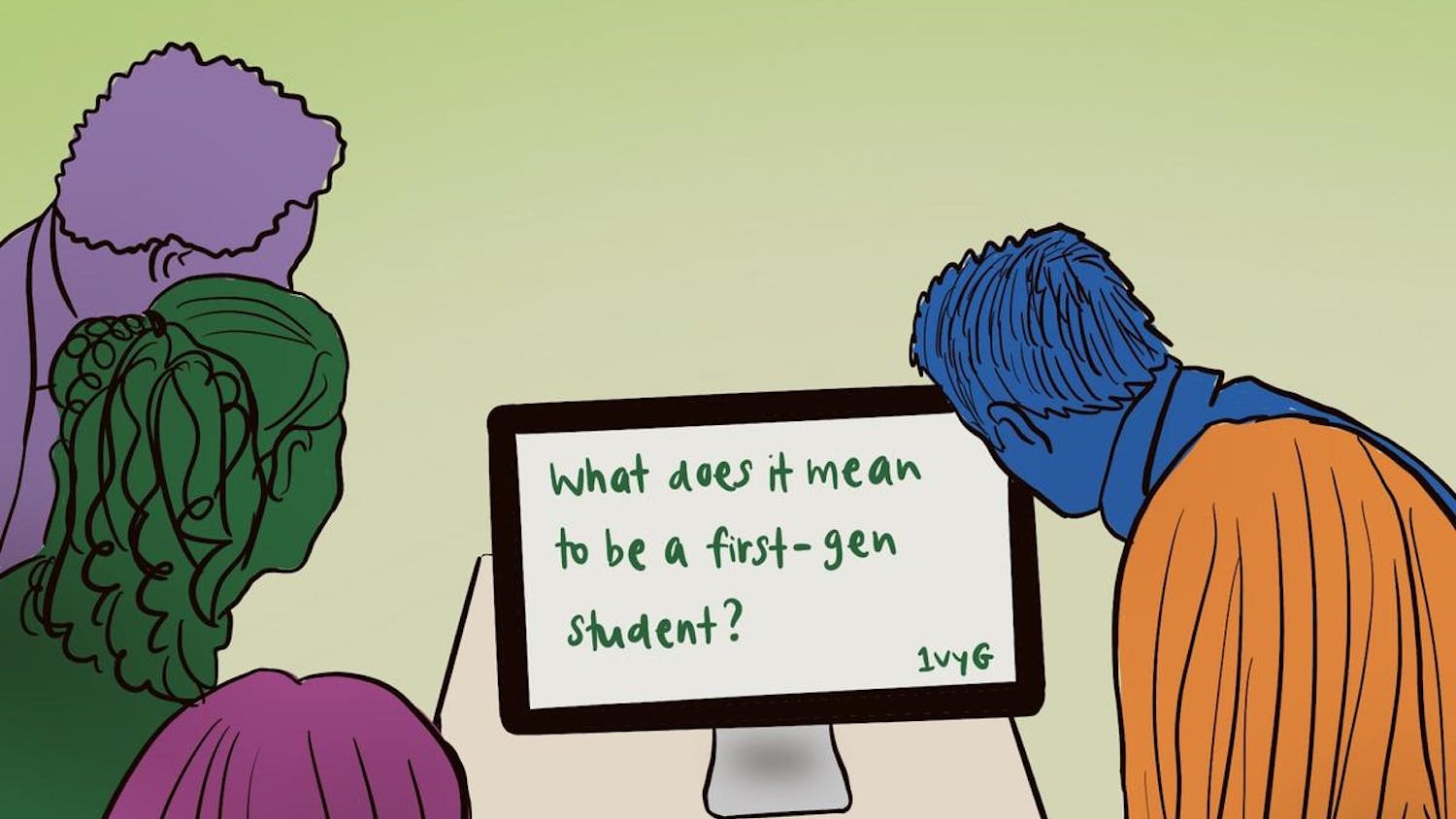The Undergraduate Council of Students unanimously approved a resolution at its general body meeting Wednesday evening demanding that the University hire an ombudsperson trained in transformative justice and community accountability processes to work with undergraduates.
All 18 voting members in attendance voted in support of the resolution — which required a two-thirds majority to pass — after the proposal was put forward by UCS President Shanzé Tahir ’19 and Vice President Camila Pelsinger ’20 and opened for debate.
An ombudsperson provides informal services to facilitate “problem solving and conflict resolution that are separate and distinct from formal grievance, adjudication, judiciary and legislative processes,” according to Oberlin College’s definition, which Tahir read in part at the meeting.
This position is necessary because “no resources currently exist that provide undergraduate student communities with confidential guidance on confronting issues of harm within their own circles,” according to a copy of the resolution circulated during the meeting. The resolution was drafted after consultation with University departments, such as the Office of Institutional Equity and Diversity, the Title IX Office, BWell, the Office of Campus Life and Counseling and Psychological Services.
The University currently employs an ombudsperson who works with “faculty, staff, postdoctoral fellows and associates, graduate students and medical students,” according to the Ombuds Office’s webpage, but that person does not work with undergraduates. Their responsibilities include informally resolving conflict, addressing misconduct and facilitating difficult conversations with colleagues and supervisors.
Tahir cited Harvard, Penn, Cornell, the Massachusetts Institute of Technology and Oberlin College as examples of institutions that offer access to an ombudsperson for everyone on their campuses.
“The collegiate model that we really like is Oberlin’s,” Tahir said. “Their services and programs are really amazing,” and include information gathering, coaching in conflicts and “shuttle diplomacy,” where the ombudsperson acts as an intermediary between two parties, she said.
Pelsinger emphasized the role of the proposed ombudsperson as “a supplement to and not a replacement for the college’s formal processes” for reporting instances of interpersonal harm. While the University’s formal resolution processes may be punitive, the ombudsperson would provide other ways to address harm.
“In order to adequately fill the need expressed by the student body,” the ombudsperson should be “well-versed in Transformative Justice and Community Accountability processes for instances of interpersonal harm,” according to the text of the resolution.
Transformative justice acknowledges that harm occurs because of societal power dynamics, including “institutional and structural rape culture in terms of sexual violence,” Pelsinger said. Transformative justice thus aims to reshape “those power dynamics and those relationships so that harm won’t occur in the future,” she said.
Community accountability “is a community-based strategy that addresses violence,” Pelsinger said. In practice, the ombudsperson could facilitate community accountability by empowering students to address potentially harmful behavior exhibited by their friends, for example.
Passing a resolution is the Council’s strongest method of indicating “that this is a proposal we believe in,” said UCS Treasurer Austin Lessin ’19, who served as the Council’s parliamentarian last year.
“We can’t force the administration to hire the ombudsperson, but this is a statement of intent,” Lessin said. “What you’ll see from the language is it doesn’t forcefully establish anything.”
The resolution aligns with ideas Tahir and Pelsinger highlighted in their respective campaigns for the presidency and vice presidency last spring.
While developing the resolution, UCS held a Community Accountability Focus Group following its Sept. 26 general body meeting. Afterwards, Pelsinger said she conducted informal follow-up meetings with attendees.
The next step for the Council is to bring the proposal to Vice President for Campus Life Eric Estes, Tahir and Pelsinger said. The University’s current ombudsperson will attend next week’s general body meeting, Tahir said.
Before the meeting’s conclusion, UCS Appointments Chair Jason Carroll ’21 announced that one vacancy remains on the Student Advisory Board on Equity and Diversity, a “broadly representative, deliberative group that meets to consider matters that concern the campus community especially with regards to diversity,” according to a description on UCS’ website.





